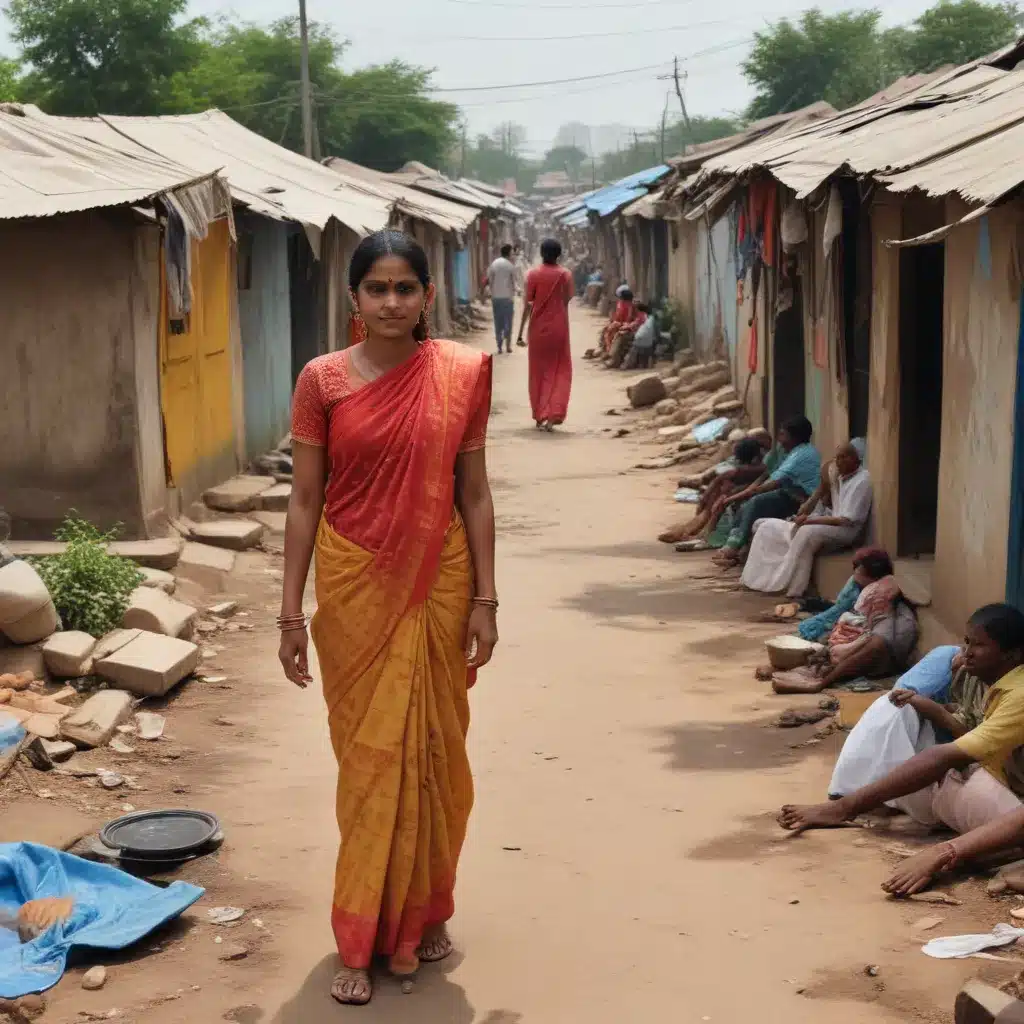
Navigating the Complexities of Water, Sanitation, and Mental Well-being
The bustling city of Hyderabad, known for its rich history and vibrant tech industry, also grapples with a pressing challenge – the intersection of water, sanitation, and mental health issues within its informal settlements. These densely populated areas, home to millions of marginalized individuals, face a unique set of obstacles that require a comprehensive, community-driven approach to address.
Uncovering the Nexus: WASH and Mental Health in Hyderabad’s Informal Settlements
Residents of Hyderabad’s informal settlements often lack access to basic water and sanitation services, a reality that exacerbates their vulnerability to a range of physical and mental health concerns. Inadequate water supply, poor sanitation infrastructure, and limited hygiene facilities contribute to the spread of waterborne diseases, malnutrition, and environmental degradation, all of which can have a significant impact on an individual’s mental well-being.
“The constant stress of finding clean water and managing basic sanitation needs takes a heavy toll on the mental health of residents in these communities,” explains Rekha Sharma, a community health worker in Hyderabad. “They face a daily struggle that can lead to anxiety, depression, and even suicidal ideation.”
Amplifying the Challenges: Intersecting Vulnerabilities
The mental health burdens faced by residents in Hyderabad’s informal settlements are further compounded by a range of intersecting vulnerabilities. Poverty, social stigma, limited access to healthcare, and gender-based discrimination all play a role in shaping the mental health landscape of these communities.
Women, in particular, bear a disproportionate burden, often responsible for managing household water and sanitation needs while also facing the threat of gender-based violence and limited autonomy. The lack of safe and private sanitation facilities can exacerbate feelings of insecurity and isolation, contributing to heightened levels of stress and anxiety.
“The women in our community face immense pressure to ensure their families have access to clean water and proper sanitation,” says Sameera, a community leader in one of Hyderabad’s informal settlements. “This, coupled with the constant fear of harassment and violence, takes a significant toll on their mental well-being.”
Forging a Path Forward: Integrated Approaches to WASH and Mental Health
Addressing the intersection of WASH and mental health challenges in Hyderabad’s informal settlements requires a multi-pronged approach that prioritizes community engagement, cross-sectoral collaboration, and the integration of evidence-based interventions.
Strengthening WASH Infrastructure and Services
Improving access to clean water, adequate sanitation, and proper hygiene facilities is a crucial first step in addressing the underlying WASH-related challenges that contribute to poor mental health. This can be achieved through targeted investments in infrastructure development, the establishment of community-based water and sanitation management systems, and the implementation of sustainable WASH service delivery models.
“We’ve seen how the installation of community-managed water kiosks and the construction of gender-responsive sanitation facilities can have a positive impact on the mental well-being of residents,” says Aisha, a WASH specialist working in Hyderabad’s informal settlements. “These interventions not only improve physical health but also foster a sense of community empowerment and belonging.”
Integrating Mental Health Support into WASH Initiatives
Alongside efforts to strengthen WASH infrastructure and services, it is crucial to integrate mental health support mechanisms into community-based WASH programs. This can involve training frontline WASH workers to recognize and respond to mental health concerns, establishing referral pathways to mental health services, and incorporating psychosocial support activities within WASH interventions.
“Our experience has shown that when WASH and mental health interventions are implemented in a coordinated manner, we see a more holistic improvement in the overall well-being of the community,” explains Dr. Ramesh, a public health expert collaborating with local organizations in Hyderabad. “The key is to create a seamless integration between these two critical domains.”
Empowering Communities through Participatory Approaches
Effective and sustainable solutions to the WASH-mental health nexus require the active engagement and empowerment of local communities. By adopting participatory approaches that involve residents in the design, implementation, and monitoring of interventions, programs can better address the unique needs and contexts of each informal settlement.
“We’ve learned that when community members are given a voice and a stake in the process, they become powerful agents of change,” says Shanti, a community organizer working in Hyderabad. “This not only enhances the relevance and effectiveness of the interventions but also fosters a sense of ownership and pride within the community.”
Scaling Up for Systemic Change
To address the WASH-mental health challenges in Hyderabad’s informal settlements at a broader scale, there is a pressing need for coordinated action among various stakeholders, including local and regional governments, civil society organizations, and international development partners.
“Tackling this complex issue requires a holistic, multi-sectoral approach that goes beyond traditional silos,” emphasizes Aisha. “We must work together to advocate for policy reforms, mobilize resources, and ensure the integration of WASH and mental health considerations into urban planning and development strategies.”
By leveraging the insights and experiences gained from community-based interventions, policymakers can shape more inclusive and responsive programs that address the unique needs of marginalized populations in Hyderabad’s informal settlements. This collaborative effort can pave the way for systemic change, ultimately improving the overall well-being and resilience of these communities.
Conclusion: A Shared Responsibility for Inclusive and Sustainable Development
Addressing the intersection of WASH and mental health challenges in Hyderabad’s informal settlements is a complex and multifaceted endeavor. However, by adopting a holistic, community-driven approach that integrates these critical domains, we can empower residents, strengthen resilience, and work towards a more equitable and sustainable future for all.
“This is not just a matter of improving physical infrastructure or providing mental health services,” concludes Rekha. “It’s about recognizing the inherent dignity and worth of every individual and ensuring that they have the resources and support they need to thrive, both physically and mentally.”
As we continue to navigate the evolving landscape of urban development and public health, the lessons learned from Hyderabad’s experience can serve as a guiding light for communities around the world, inspiring collaborative action and a shared commitment to inclusive and sustainable progress.

